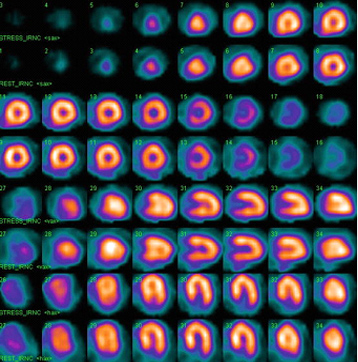What Is Stress Myocardial Perfusion Imaging (Also Known as Stress Thallium) Test?
Stress MPI is a nuclear medicine investigation that evaluates the blood flow to the heart. In the investigation, a small amount of radiotracer is injected into the patient. The radiotracer distributes in the heart based on the blood flow is used. Two scan’s are acquired, one with the patient in resting state (called a “rest” scan) and another after either exercise or medication in order to increase blood flow to the heart (called a “stress” scan). The two stress and rest images are compared to get the desired information about the blood flow to the heart.





